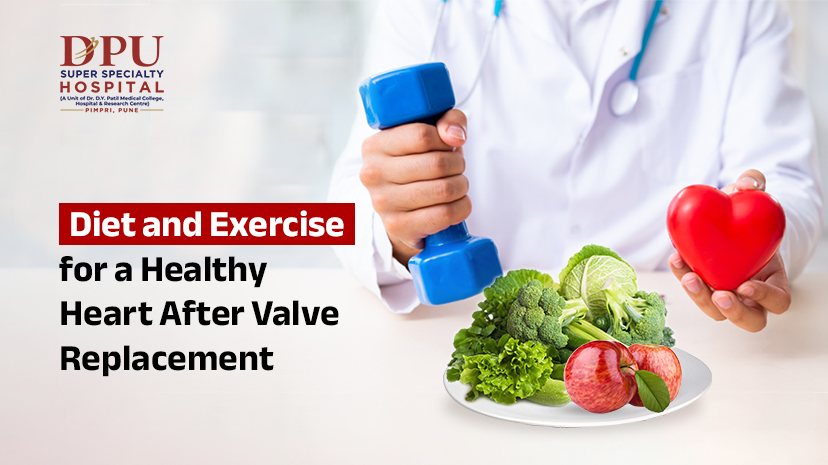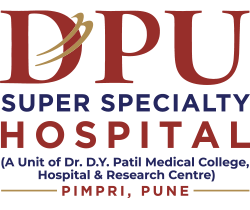Diet and Exercise for a Healthy Heart After Valve Replacement

Taking care of your heart after valve replacement surgery is crucial for long-term wellness. While surgery fixes the immediate issue, your daily choices can make all the difference in how well your heart functions and how quickly you recover. Focus on eating a heart-healthy diet rich in whole foods, watching your sodium intake, staying hydrated, and limiting saturated and trans fats. Regular physical activity, such as short walks and strength training, can also help. Remember to start slow, listen to your body, and rest when needed. Additionally, manage stress, get enough sleep, and stay connected with loved ones for emotional support – by making these informed diet and exercise choices, you'll be well on your way to a healthier, happier heart.
Heart-Healthy Diet: Nourish Your Heart for Recovery
After valve replacement surgery, a balanced and nutrient-rich diet plays a vital role in supporting your body's healing and recovery process. Proper nutrition aids in a smooth recovery and also helps mitigate the risk of future heart-related complications
Focus on Nutrient-Dense, Low-Sodium Foods
- Leafy greens & Vegetables: like spinach, kale, and arugula are rich in vitamins and minerals that promote heart health. Vegetables such as carrots, tomatoes, and bell peppers offer antioxidants that help reduce inflammation.
- Fruits: Berries, apples, oranges, and bananas are high in fibre, potassium, and antioxidants, which contribute to lowering blood pressure and maintaining cardiovascular health.
- Whole Grains: Incorporate whole grains like oats, brown rice, quinoa, fiberand barley to support healthy cholesterol levels and provide sustained energy.
- Lean Proteins: Opt for lean protein sources like fish, poultry, tofu, and legumes. Fatty fish such as salmon, mackerel, and sardines provide omega-3 fatty acids, known for their heart-protective properties.
- Healthy Fats: Avocados, nuts, seeds, and olive oil provide unsaturated fats that benefit heart health. These fats help lower "bad" cholesterol and support healthy blood vessels.
Limit Saturated Fats, Salt, and Processed Foods
- Reduce Saturated Fats: Minimize intake of red meat, full-fat dairy products, and processed foods high in trans fats, which can raise cholesterol levels and increase the risk of heart disease.
- Cut Back on Salt: Excess sodium can increase blood pressure and strain the heart. Opt for fresh, unprocessed foods, and avoid high-sodium condiments or processed snacks.
- Minimize Sugar: High sugar intake can lead to obesity, diabetes, and high blood pressure, all of which put stress on the heart. Choose natural sweeteners like honey or stevia in moderation.
Stay Hydrated
Proper hydration is essential for maintaining circulation, regulating blood pressure, and supporting heart function. Aim to drink plenty of water throughout the day.
Exercise: Strengthen Your Heart and Body Post-Surgery
Exercise is crucial for cardiovascular rehabilitation after valve replacement surgery, but it's essential to start slowly and gradually increase intensity. Always consult your doctor before beginning any exercise regimen to ensure it's safe based on your recovery stage. Begin with low-intensity activities like short walks and progress over time, listening to your body and resting when needed to avoid overexertion and promote a safe and effective recovery.
Start with Light, Low-Impact Activities
- Walking: One of the best and easiest exercises post-surgery is walking. It improves circulation, strengthens the heart, and can be easily adjusted to your fitness level.
- Gentle Stretching & Yoga: Light stretching and yoga can improve flexibility, reduce stress, and promote a calm, healthy mind. These exercises help lower heart rate and enhance blood circulation.
Gradually Increase Intensity
As your strength builds, you can slowly introduce more vigorous activities. Activities like cycling, swimming, or light jogging are excellent for improving cardiovascular endurance. Start with shorter sessions, and gradually increase the duration and intensity as tolerated.
Incorporate Strength Training
Once your body has healed and you have medical clearance, strength training can be a valuable addition to your exercise routine. Focus on low-resistance exercises that target major muscle groups to improve overall muscle tone and support heart health.
Cardiovascular Exercise
Moderate-intensity aerobic exercises, such as brisk walking, cycling, or swimming, should be the foundation of your post-surgery exercise plan. Aim for at least 30 minutes of moderate exercise most days of the week to help maintain healthy blood pressure, cholesterol levels, and weight.
Monitor Your Progress
Keep track of how your body responds to exercise. Pay attention to any signs of fatigue, dizziness, or shortness of breath, and consult your healthcare provider if any concerns arise. Regular check-ins with your doctor will help ensure that your exercise routine is safe and effective.
Lifestyle Modifications: Long-Term Heart Health
Adopting a heart-healthy lifestyle post-surgery goes beyond diet and exercise. Small changes can have a significant impact on maintaining optimal heart function and preventing future complications.
Quit Smoking
Smoking is a major risk factor for cardiovascular disease. If you smoke, now is the perfect time to quit. Your heart and lungs will benefit greatly from this change, and it will also support a faster recovery.
Limit Alcohol Intake
Excessive alcohol consumption can strain the heart and disrupt blood pressure levels. If you choose to drink, limit your intake to moderate levels—up to one drink per day for women and two for men.
Manage Stress
Chronic stress can have a negative impact on heart health, contributing to high blood pressure and heart disease. Practice stress-reducing activities like mindfulness, meditation, or simply taking time each day to relax and unwind.
Get Adequate Sleep
Adequate, quality sleep is essential for heart health. Aim for 7-9 hours of restful sleep each night to help your body recover and maintain a healthy heart rhythm.
Conclusion: Investing in a Healthy Future
The months following valve replacement surgery are a crucial period for long-term heart health. By adopting a heart-healthy diet, engaging in appropriate exercise, and making mindful lifestyle choices, you can optimize your recovery and significantly improve your chances of a healthy, fulfilling life post-surgery. These changes are not only about supporting your heart but also about investing in your overall well-being for years to come.
Every small step counts, so take the time to care for your heart, and give yourself the best chance at a strong, vibrant future.








